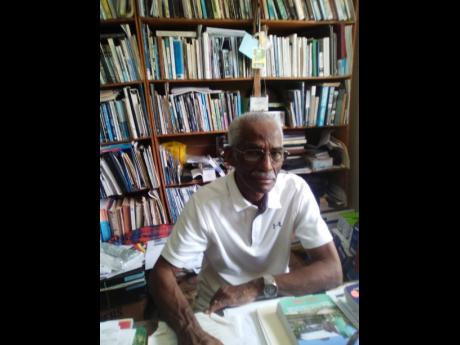The Moses Baker story – Part I
THE AFRICAN-AMERICAN preacher George Liele (Lisle) established the first Baptist church in Jamaica, along Windward Road in Kingston. He and some of his own converts were to establish more church across the island, mainly in the east and north of the island. There were fall-outs, tension, and break-aways, and some of his flocks grew to rival him in prominence. Moses Baker was one of them.
Baker came to Jamaica about the same time as Liele as an unconverted Anglican. He could read the scriptures, and write. The barber he was came with his wife and child, but could find no work to sustain his family. He turned to farming and his wife worked as a seamstress. A mere observation by an old enslaved African named Cupid Wilkin of his eating was to change his life forever.
Wilkin saw him eating a meal, but he did not say his grace before doing such. Wilkin broached the subject and gave him a lesson about thanking God, returning God’s love, prayer, and thanksgiving. Baker was a coloured man thought Wilkin had passed his place by reprimanding him. But, Baker’s wife was more embracing of what Wilkin was teaching them from the scriptures, and encouraged her husband to do likewise, since he was a heavy drinker.
Eventually, Baker visited the enslaved Africans who were preaching the gospel. When he found them in a little hut they were on their knees praying and praising God. He, too, fell on his knees. “That moment I formed a resolution that I would turn and serve God. From this time I frequently conversed with the old man. I now began to apply my heart to God. I prayed day and night for the space of three to four weeks,” Lloyd A. Cooke quoted Baker as saying in his book, The Story of Jamaican Missions.
But, the thrill of finding God did not last long for Baker; he was perhaps longing for the tingling sensation that he would derive from drinking rum. He regretted being led by the enslaved old man and banished him from his yard. Baker did not see the light of which Wilkin preached, and suddenly he also could not see the light of day either. He was blind, and beset by excruciating headaches.
Those motivated him to resent Wilkin some more as he became bed-ridden. Death was now on his mind, and Christ was not yet in his heart, so he became afraid. Wilkin was not done with his yet, however. He returned to Baker’s home, not only with a mouthful of scriptures, and empty hands. From his farm Wilkin brought food for the Baker’s family and when Moses heard from his wife that he was eating Wilkin’s food, his resentment towards Baker subsided.
Wilkin surmised that Baker’s malaise was a sign from God, and suggested that he proceed on a period of fasting. Baker found the suggestion unsettling, but he yielded and beseeched the Lord, begging for mercy to fall upon him. But, was it too late?
“In this distressed situation I continued for upwards of six months, till all my limbs failed me, and I was obliged to be led about life like a child. But, I continually applied to God by prayer and found that I daily grew in faith,” Cooke quotes Baker who visited Liele’s church and was baptised by Liele himself.
When Baker was ill, a Mr Winn, a Liguanea landowner, would visit him. Winn saw the grave situation that he was in, and realising that Baker had no money to afford himself a doctor Winn opted to take care of his medical expenses. But, in return, it seems, Winn wanted someone to teach his enslaved Africans religious and moral principles.
Baker was not sure he was the right person to be such a teacher, and said he need to know whether such an endeavour was the Lord’s will. He accepted the medical assistance from Winn nonetheless. Medical treatment for a year was successful for Wilkin as he had regained his sight. That was when he accepted Winn’s proposal to attend to teach the enslaved Africans.
“In the midst of my prayer, I felt a great change upon my heart, and seemed to have a sure trust and confidence in the merits of Jesus Christ that my sins were forgiven, and that I was reconciled to the favour of God,” Cooke quotes.
Yet, reconciliation and the favour of God were not enough. Mrs Baker wanted land on which to farm. She, who used to sew for Winn, asked him for a piece. But, he could not offer her any in Kingston and St Andrew. However, there was a piece near Adelphi all the way in St James that they could get.
“So, in February 1788, Baker, his wife and daughter set off for St James by horse, and with money and a servant that Mr Winn had sent for him. So was the first preacher of the gospel to the slaves in western Jamaica sent forth by God and by Mr Winn,” Cooke writes.

